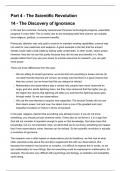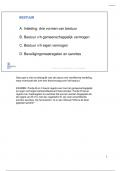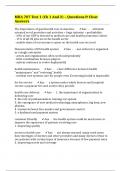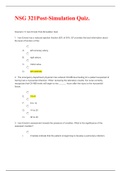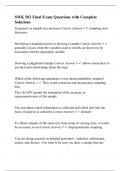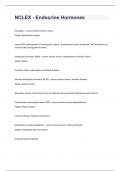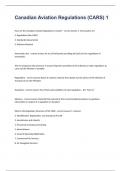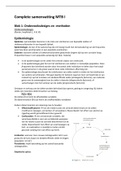Summary
Summary Sapiens - Yuval Noah Harari - Part 4: The Scientific Revolution
- Course
- Institution
- Book
This is a comprehensive summary of the fourth part of the book Sapiens: A History of Humankind. It covers each chapter with distinct subtitles, making it easy to navigate. I created this summary while reading the book, making it ideal for those looking for a quick overview. It's also available as p...
[Show more]
